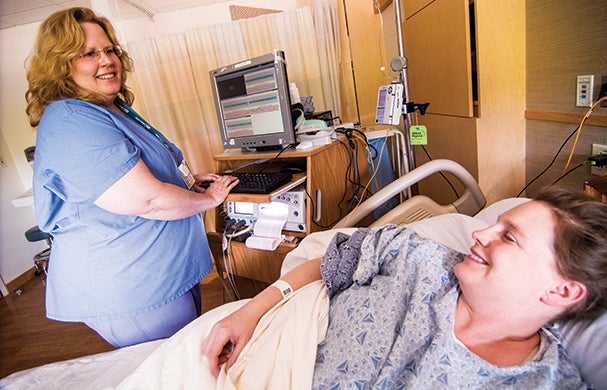Mass is 2nd in nation for child well-being
 Jennifer Kenney, an expectant mother from Milford, is examined by Dr. Fae Nason at Milford Regional Medical Center at a 40-week prenatal visit. Massachusetts ranked second in the nation for child well-being.
Jennifer Kenney, an expectant mother from Milford, is examined by Dr. Fae Nason at Milford Regional Medical Center at a 40-week prenatal visit. Massachusetts ranked second in the nation for child well-being.
Massachusetts ranks second in the nation for child well-being, but federal budget cuts and a repeal of the Affordable Care Act could change that, according to new data.
Children in Massachusetts have greater access to health insurance than anywhere else in the country, according to national KIDS COUNT rankings from the Annie E. Casey Foundation in Baltimore. The report measures child well-being by looking at education, health, economic well-being, and family and community as indicators.
The commonwealth has a low child and teen death rate, and ranked 19th for percent of low birth-weight babies. It also had a comparatively low rate of alcohol and drug use, but the data used don’t reflect recent trends in opioid use, according to the Massachusetts Budget and Policy Center.
Massachusetts fared well overall in education and economic indicators, with a low child poverty rate and a low percentage of teens neither attending school nor working. However, high housing costs and a tough employment for parents drags down the economic well-being of children, according to the report.
Proposed federal budget cuts, if enacted, would make things more difficult for children and families, according to Mass Budget. Repealing the Affordable Care Act’s Medicaid expansion would put more than $1.1 billion at risk in Massachusetts by 2021. That, plus a proposal to turn Medicaid from an entitlement to a per-capita allotment, could cut 45 percent of federal funds for health insurance by 2026.
Also at risk is $149 million in funding for the Children’s Health Insurance Program, as well as the $124 million Massachusetts receives for community health centers, the $47 million it gets for local substance abuse prevention and treatments, and $10 million for community mental health services.









0 Comments